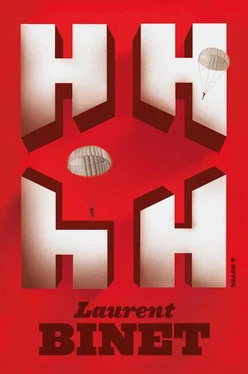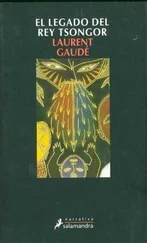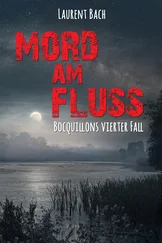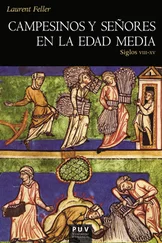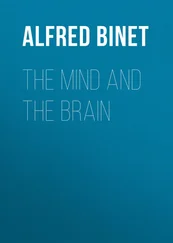Laurent Binet - HHhH
Здесь есть возможность читать онлайн «Laurent Binet - HHhH» весь текст электронной книги совершенно бесплатно (целиком полную версию без сокращений). В некоторых случаях можно слушать аудио, скачать через торрент в формате fb2 и присутствует краткое содержание. Город: New York, Год выпуска: 2012, ISBN: 2012, Издательство: Farrar, Straus and Giroux, Жанр: Историческая проза, на английском языке. Описание произведения, (предисловие) а так же отзывы посетителей доступны на портале библиотеки ЛибКат.
- Название:HHhH
- Автор:
- Издательство:Farrar, Straus and Giroux
- Жанр:
- Год:2012
- Город:New York
- ISBN:978-0-374-16991-6
- Рейтинг книги:3 / 5. Голосов: 1
-
Избранное:Добавить в избранное
- Отзывы:
-
Ваша оценка:
- 60
- 1
- 2
- 3
- 4
- 5
HHhH: краткое содержание, описание и аннотация
Предлагаем к чтению аннотацию, описание, краткое содержание или предисловие (зависит от того, что написал сам автор книги «HHhH»). Если вы не нашли необходимую информацию о книге — напишите в комментариях, мы постараемся отыскать её.
HHhH — читать онлайн бесплатно полную книгу (весь текст) целиком
Ниже представлен текст книги, разбитый по страницам. Система сохранения места последней прочитанной страницы, позволяет с удобством читать онлайн бесплатно книгу «HHhH», без необходимости каждый раз заново искать на чём Вы остановились. Поставьте закладку, и сможете в любой момент перейти на страницу, на которой закончили чтение.
Интервал:
Закладка:
June 18, 2008. They come to their last clip, and it’s the kind of thing that you grasp very quickly, I suppose, even (perhaps especially) in the heat of battle. The four men don’t need to speak. Gabčík and his friend Valčík smile at each other—I’m sure of that, I can see them. They know they’ve fought well. It’s noon when four dull explosions pierce the tumult of gunfire, which stops immediately. Silence falls once again on Prague, like a shroud of dust. The SS are like statues: nobody dares fire, or even move. They wait. Pannwitz stands rigid. He signals to an SS officer, who hesitates—where is the manly confidence that he ought, by law, to show in all circumstances?—then orders two of his men to go and see. Carefully, they descend the first few steps. Then, like two little boys, they stop and look back up at their commander, who signals that they should continue— weiter, weiter! Everybody in the church watches, breath held. They disappear into the crypt. Time passes slowly then a call is heard, in German, from beyond the grave. Revolver in hand, the officer jumps to his feet and rushes down the staircase. He comes back up, his trousers soaked up to his thighs, and yells: “Fertig!” It’s all over. Four bodies float in the water. Gabčík, Valčík, Svarc, and Hruby killed themselves in order not to fall into the Gestapo’s hands. On the surface of the water float ripped-up banknotes and identity papers. Among the objects scattered around the crypt are a stove, some clothes, mattresses, and a book. There are bloodstains on the wall and a pool of blood on the stairs—though that, at least, is German blood. And cartridge cases but not a single cartridge: they kept the last ones for themselves.
It is noon. It has taken eight hundred SS stormtroopers nearly eight hours to get the better of seven men.
251
I am coming to the end and I feel completely empty. Not just drained but empty. I could stop now, but that’s not how it works here. The people who took part in this story are not characters. And if they became characters because of me, I don’t wish to treat them like that. With a heavy heart—and without turning it into literature, or at least, without meaning to—I will tell you what became of those who were still alive on June 18, 1942.
When I watch the news, when I read the paper, when I meet people, when I hang out with friends and acquaintances, when I see how each of us struggles, as best we can, through life’s absurd meanderings, I think that the world is ridiculous, moving, and cruel. The same is true for this book: the story is cruel, the protagonists are moving, and I am ridiculous. But I am in Prague.
I fear that I am in Prague for the last time. The stone ghosts that people the town surround me, as always, with their threatening, welcoming, or indifferent presences. I see a young woman’s body, like an evanescent sculpture, with brown hair and white skin, pass under the Charles Bridge: a summer dress clings to her stomach and her thighs, the water streams over her bared chest, and on her breasts magical incantations are vanishing. The river water washes the hearts of men taken by the current. From Liliova Street I hear the echo of horses’ hooves striking the cobbles. In the tales and legends of old Prague, the city of alchemists, it’s said that the Golem will return when the city is in danger. But the Golem did not come back to protect the Jews or the Czechs. Nor, frozen in his centuries-old curse, did the iron man move when they opened Terezín, or when they killed people, when they despoiled, bullied, tortured, deported, shot, gassed, executed them in every conceivable way. By the time Gabčík and Kubiš landed, it was already too late. The disaster had occurred; there was nothing left to do but wreak vengeance. And it was stunning. But they, and their friends, and the Czech people, paid dearly for it.
Leopold Trepper, head of the French arm of the legendary Resistance organization Red Orchestra, made an observation: when a Resistance fighter fell into enemy hands and was offered the chance to cooperate, he had a choice: to accept or not. If he accepted, the damage could still be limited by saying as little as possible, hemming and hawing, releasing information drop by drop, and playing for time. This was the strategy Trepper adopted when he was arrested, and it was also the strategy used by A54. But they were both extremely high-level professional spies. Most of the time, the spy who accepted the offer to swap sides—even if he had until then resisted the worst kinds of torture—cracked very suddenly. From the moment he made his decision, he (to use Trepper’s memorable expression) “wallowed in betrayal as if in mud.” Karel Čurda is not content to lead the Gestapo to Heydrich’s assassins but also provides the names of all his contacts, and of all those who helped him after his return to his homeland. He sold Gabčík and Kubiš to the Nazis, but he gave them all the others. Nothing forced him to mention the existence of Libuse, the radio transmitter, for example. Yet he puts the Gestapo on the trail of the final two escapees from Valčík’s group, Silver A—Captain Bartos and the radiotelegrapher Potůček. The trail leads to Pardubice, where Bartos—surrounded, after being chased on foot through the town—follows his comrades’ example and kills himself. Unfortunately, when they search his body they find a little book containing lots of addresses. Thus Pannwitz is able to keep following the thread. It passes through a tiny village called Ležáky, which becomes the Nagasaki to Lidice’s Hiroshima. On June 26, Potůček the radiotelegrapher—the last parachutist still alive—sends the final message from Libuse: “The village of Lezaky, where I ended up with my transmitter, has been razed to the ground. The people who helped us were arrested [only two little blond girls suitable for Germanization would survive]. Thanks to their support, I was able to save myself and the transmitter. That day, Freda [Bartos] was not in Lezaky. I don’t know where he is and he doesn’t know where I am now. But I hope that we will manage to find one another. For now, I am alone. Next transmission: June 28 at 23 hours.” He roams through forests, is picked up at another village, and manages to escape once more. But, hunted, starving, exhausted, he is finally captured and shot on July 2 near Pardubice. I said he was the last of the parachutists, but that’s not true: there is still Čurda. The traitor gets his money, changes his name, marries a woman of good German stock, and becomes a full-time double agent on behalf of his new masters. During this time, A54, the German superagent, is sent to Mauthausen, where he manages to endlessly defer his own execution by playing the same game as Scheherezade. But not everyone has that many stories to tell.
Ata Moravec and his father; Kubiš’s fiancée, Anna Malinova; Gabčík’s fiancée, Libena Fafek (nineteen years old, probably pregnant), along with all her family; the Novaks, the Svatošes, the Zelenkas, Piskaceks, Khodls… I’m forgetting so many. The Orthodox priest of the church and all his colleagues; the people of Pardubice; all those who helped the parachutists in any way at all are arrested, deported, shot, or gassed. Professor Zelenka, however, has time to bite his cyanide pill when he’s arrested. It’s said that Mrs. Novak, the mother of the little girl with the bicycle, went mad before being sent to the gas chamber with her children. Very few slipped through the net, like the Moravecs’ concierge. Even Moula the dog, entrusted to the concierge by Valčík, died of grief at having lost his master—or so the story goes. Well, the animal did accompany Valčík on his scouting missions. But we must also add to this list everyone who had nothing to do with the assassination—hostages, Jews, political prisoners executed as part of the reprisals; whole villages; Anna Maruscakova and her lover, whose innocent letter led to the massacre at Lidice. There were also the parachutists’ families, whose only crime was to be related to them: handfuls of Kubišes and Valčíks were sent to Mauthausen and gassed. Only Gabčík’s family—his father and his sisters—would escape the massacre, thanks to their Slovak nationality. Because Slovakia was a satellite state rather than an occupied state, it kept up a semblance of independence by deciding not to execute its own countrymen, not even to please its threatening ally. In sum, thousands perished as a consequence of the assassination. But it’s said that all those who were tried for having helped the parachutists bravely declared to their Nazi judges that they regretted nothing and that they were proud to die for their country. The Moravecs did not betray their concierge. The Fafeks did not betray the Ogoun family, who also survived. I wish to pay my respects to these men and women: that’s what I’m trying to say, however clumsily. That’s what I didn’t want to forget to say, despite the inherent clumsiness of tributes and condolences.
Читать дальшеИнтервал:
Закладка:
Похожие книги на «HHhH»
Представляем Вашему вниманию похожие книги на «HHhH» списком для выбора. Мы отобрали схожую по названию и смыслу литературу в надежде предоставить читателям больше вариантов отыскать новые, интересные, ещё непрочитанные произведения.
Обсуждение, отзывы о книге «HHhH» и просто собственные мнения читателей. Оставьте ваши комментарии, напишите, что Вы думаете о произведении, его смысле или главных героях. Укажите что конкретно понравилось, а что нет, и почему Вы так считаете.
